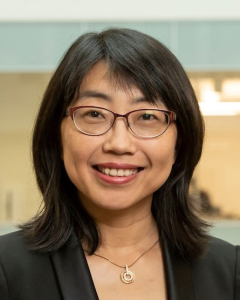LK01.1 IEEE CEDA Distinguished Lecturer Lunchtime Keynote: AI MODELS FOR EDGE COMPUTING: HARDWARE-AWARE OPTIMIZATIONS FOR EFFICIENCY
Hai (Helen) Li, Duke University, United States

As artificial intelligence (AI) transforms various industries, state-of-the-art models have exploded in size and capability. The growth in AI model complexity is rapidly outstripping hardware evolution, making the deployment of these models on edge devices remain challenging. To enable advanced AI locally, models must be optimized for fitting into the hardware constraints. In this presentation, we will first discuss how computing hardware designs impact the effectiveness of commonly used AI model optimizations for efficiency, including techniques like quantization and pruning. Additionally, we will present several methods, such as hardware-aware quantization and structured pruning, to demonstrate the significance of software/hardware co-design. We will also demonstrate how these methods can be understood via a straightforward theoretical framework, facilitating their seamless integration in practical applications and their straightforward extension to distributed edge computing. At the conclusion of our presentation, we will share our insights and vision for achieving efficient and robust AI at the edge.
Hai “Helen” Li is the Clare Boothe Luce Professor and Department Chair of the Electrical and Computer Engineering Department at Duke University.
She received her B.S. and M.S. degrees from Tsinghua University, both with early graduation, and a Ph.D. from Purdue University in 2004. Earlier in her career, she was with Qualcomm, Inc., Intel Corporation, Seagate Technology, the Polytechnic Institute of New York University, and the University of Pittsburgh. Her research interests include neuromorphic computing systems, machine learning acceleration and trustworthy AI, conventional and emerging memory technologies, and software and hardware co-design. She has authored or co-authored more than 250 technical papers in peer-reviewed journals and conferences and a book entitled Nonvolatile Memory Design: Magnetic, Resistive, and Phase Changing (CRC Press, 2011). She was a Distinguished Lecturer of the IEEE CAS Society (2018–2019) and is a distinguished speaker of ACM (2017–2020). Dr. Li is a recipient of the NSF Career Award, DARPA Young Faculty Award (YFA), TUM-IAS Hans Fischer Fellowship from Germany, and ELATE Fellowship. Dr. Li is a fellow of ACM and IEEE.


